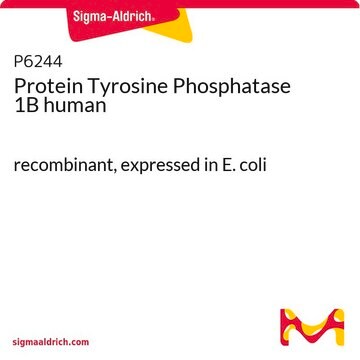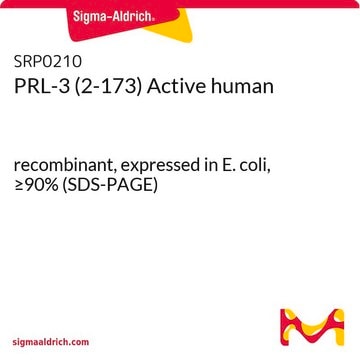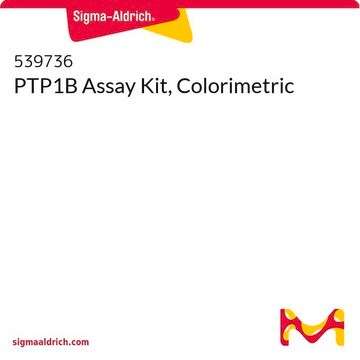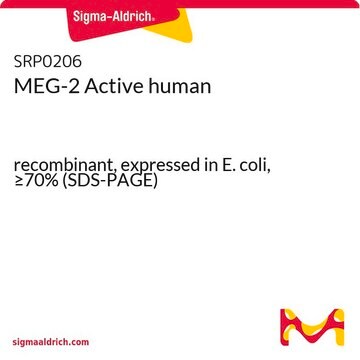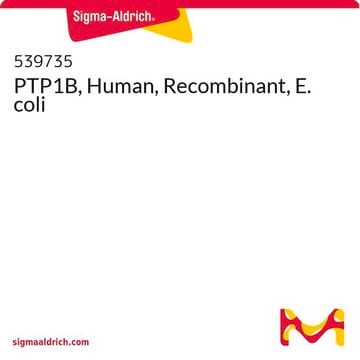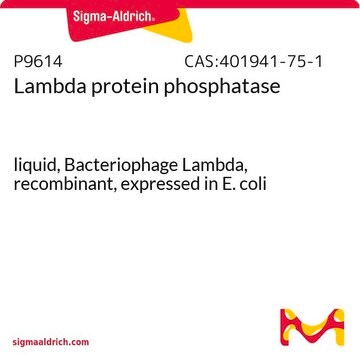SRP0215
PTP1B full length Active human
recombinant, expressed in E. coli, aqueous solution, ≥55% (SDS-PAGE)
Synonym(s):
PTPN1, Protein tyrosine phosphatase, non-receptor type 1
About This Item
Recommended Products
biological source
human
recombinant
expressed in E. coli
Assay
≥55% (SDS-PAGE)
form
aqueous solution
mol wt
76 kDa
packaging
pkg of 20 μg
storage condition
(Tightly closed)
avoid repeated freeze/thaw cycles
concentration
1.65 mg/mL
technique(s)
inhibition assay: suitable
NCBI accession no.
UniProt accession no.
shipped in
dry ice
storage temp.
−70°C
Gene Information
human ... PTPN1(5770)
General description
The gene PTPN1 (protein tyrosine phosphatase-1B) is mapped to human chromosome 20q13.13 and encodes a member of the protein tyrosine phosphatase (PTP) family. The open reading frame of 1305 bp encodes a protein of 435 amino acids. It is localized at the cytoplasmic side of the endoplasmic reticulum. PTP1B is characterized by a phosphatase catalytic domain and a proline-rich domain.
Application
Biochem/physiol Actions
Unit Definition
Physical form
Preparation Note
antibody
inhibitor
related product
Storage Class Code
10 - Combustible liquids
WGK
WGK 1
Flash Point(F)
Not applicable
Flash Point(C)
Not applicable
Certificates of Analysis (COA)
Search for Certificates of Analysis (COA) by entering the products Lot/Batch Number. Lot and Batch Numbers can be found on a product’s label following the words ‘Lot’ or ‘Batch’.
Already Own This Product?
Find documentation for the products that you have recently purchased in the Document Library.
Customers Also Viewed
Our team of scientists has experience in all areas of research including Life Science, Material Science, Chemical Synthesis, Chromatography, Analytical and many others.
Contact Technical Service
